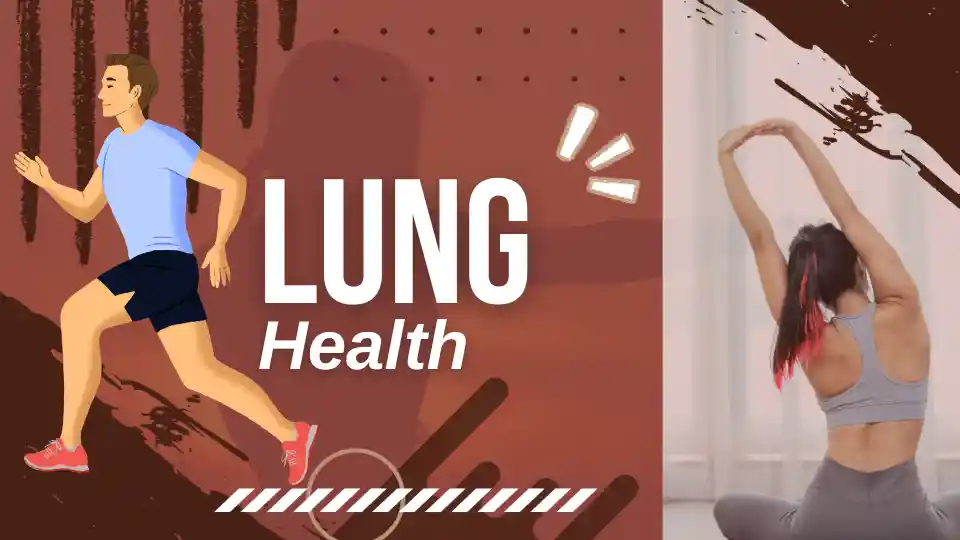The lungs rarely receive a second thought in life but play a vital role in supplying oxygen to keep us moving. Exertion may make us pause to think of how our lungs function, but mostly our lungs perform daily without our attention.
A focus on exercise and fitness often centers around the body’s visible parts, with toned arms and legs reflecting a picture of health in our mind. But fitness is more vital to body parts we don’t see, and the lungs are significant benefactors of daily exercise. Easier breathing is also possible as we age when exercise and fitness play a role in everyday life.
Support for the Lungs
Daily physical activity requires more work from the lungs, requiring them to work harder as the demand for more oxygen to the muscles increases. Exercise increases your muscle strength, but it also makes the lungs stronger. When this occurs, your lungs become better at moving oxygen through the bloodstream, supplying oxygen to working muscles.
You may notice that shortness of breath happens less frequently as you increase physical activity. The lungs are not the only body part that assists with breathing. Specific exercises can benefit muscles that facilitate inhaling and exhaling, while others strengthen the diaphragm and neck.
Being diagnosed with any disease that affects the lungs can make it intimidating to participate in daily exercise. But lung health also equates to heart health. When you exercise, the lungs are busy sending oxygen out into the body, improving circulation and allowing the tissue around the lungs to become strong.
Increase Lung Capacity
It is essential to experience exercise in many forms and not only in aerobic activities such as walking or bicycling. Strengthening the lungs and building lung capacity enables you to have more oxygen to perform more intense exercises and keep up with demanding daily tasks.
The amount of air the lungs can hold is your lung capacity. Breathing exercises can vastly improve your lungs and supply more air.
Lung function decreases slowly over time. It can be shocking to realize this begins as early as our late twenties. Even at an early age, focusing on healthy exercise and fitness can benefit lung health. Exploring exercises, such as diaphragmatic breathing for the lungs, can help improve vital muscles that are critical in moving the diaphragm, allowing for easier emptying of the lungs.
Lung Health Increases Mental Health
Emotional stress is also a factor in breathing easier. Stress often shuts us down, reducing our participation in exercise and life. Strong emotional responses present in the respiratory system by causing shortness of breath or rapid breathing.
When the lungs are healthy, it is easier to recover from respiratory responses to health. However, when the disease is present in the lungs, stress can provoke breathing issues, making it difficult to recover and return to normal breathing.
But better breathing helps regulate stressful emotions, allowing for a more centered point of view and control over emotional responses, such as panic attacks. It is vital to improve lung health and focus on breathing if you suffer from any of the following disorders:
- Asthma
- COPD
- Mesothelioma
- Asbestosis
- Lung Cancer
Additional Benefits of Lung Health
Not only do we breathe easier as a result of exercise, but we also enjoy many additional benefits. Some of the perks of exercise and increased lung health include:
- Reduced risk of cancer, including lung cancer
- Better sleep
- More energy for daily activities
- Increased brain function
- Stronger muscles
Begin Your Lung Health Journey
Exercise should be safe if you do not suffer from any known diseases. But lung diseases and breathing disorders can make exercise feel intimidating. Following these recommendations can help you overcome obstacles to achieving lung health and help you find a path to fitness and exercise you enjoy.
- Speak with your doctor about safe exercises when coping with lung disease.
- To protect your lungs, monitor air quality in your area. Exercise indoors when the quality is poor.
- Find an exercise partner you can depend on to help you meet your daily goals.
- Incorporate aerobic and strength training activities to support lung health.
- Explore breathing exercises to build the body’s muscles critical to healthy lungs.
Don’t let the words be intimidating if you are new to exercise and fitness. Fitness can begin with household chores, lawn care, and gardening. Slowly working your way up to a goal of 30 minutes a day will increase the chances of sticking with exercises that improve lung health and keep you breathing easy.
